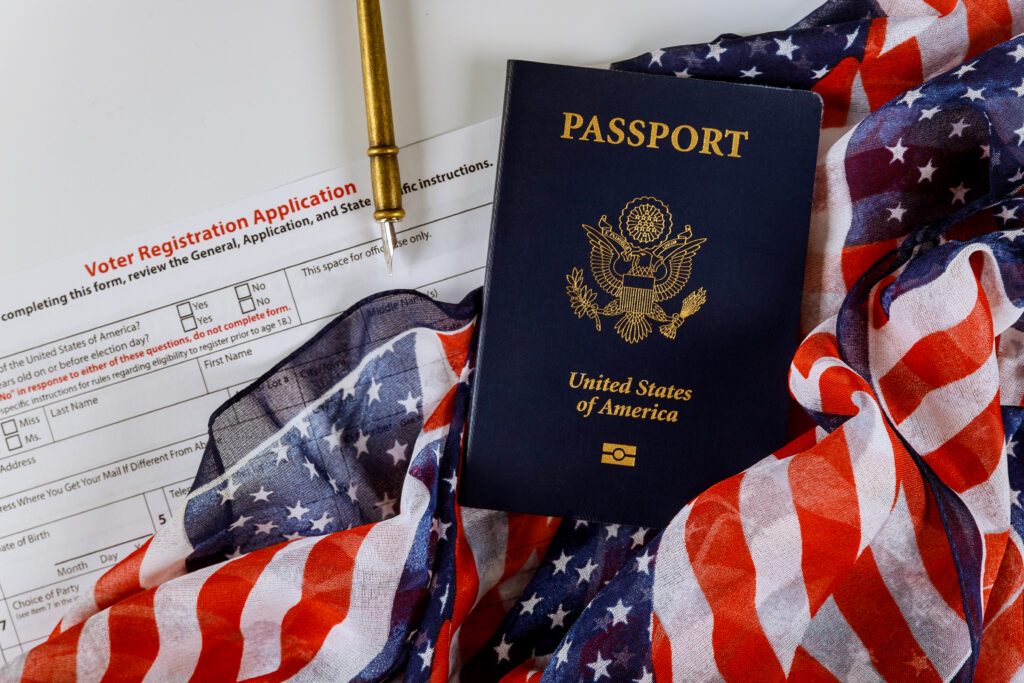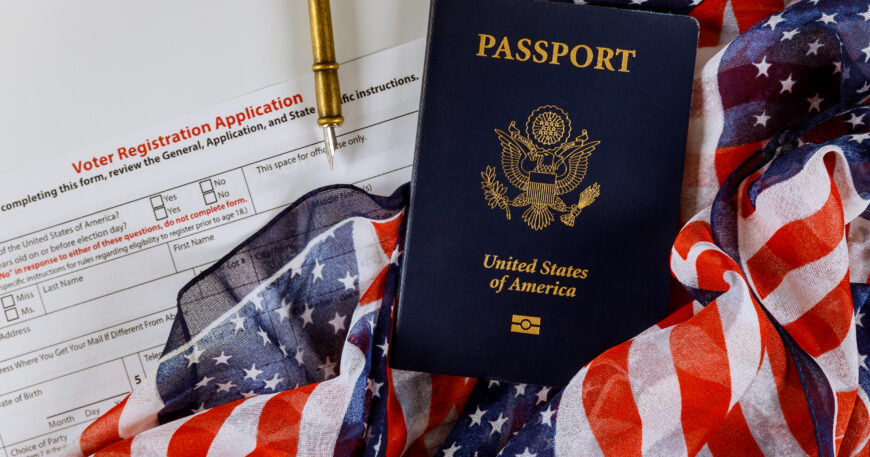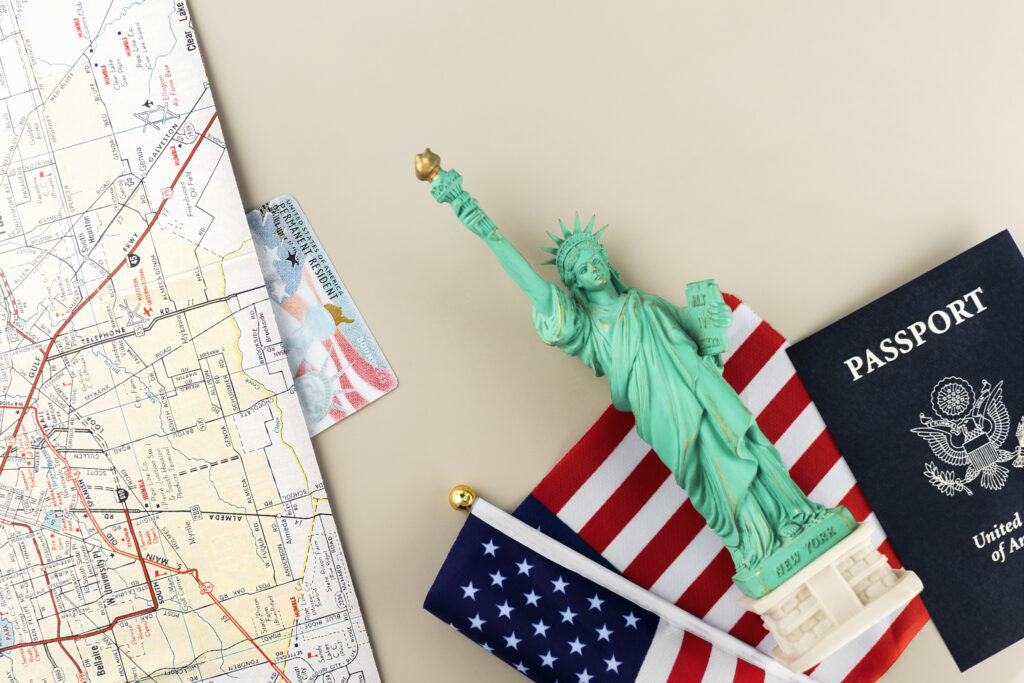Introduction to US Citizenship
US citizenship is one of the most sought-after statuses worldwide, offering numerous rights, privileges, and opportunities. Whether you’re born in the United States or are pursuing naturalization, obtaining US citizenship can transform your life.
In this article, we’ll walk you through the whole process of applying for US citizenship, from the requirements to apply to the application process, timeline, and possible pitfalls. After reading this article, you will know how to apply for US citizenship and what it takes to achieve this milestone.

What Is US Citizenship?
Before getting into the process, you need to know what US citizenship is. To be a US citizen not only allows you to reside and work in any location in the United States but also entitles you to vote in federal elections, travel on a US passport, and receive government benefits. Additionally, US citizenship provides you with a feeling of belonging to a country with a great history and potential opportunities.
US Citizenship Requirements
To qualify for US citizenship, applicants are required to satisfy some major US citizenship requirements. Here’s the breakdown of the general requirements:
Permanent Resident Status: You must have been a legal permanent resident (green card holder) for at least 5 years (3 years if you are married to a US citizen).
Good Moral Character: Applicants need to exhibit good moral character for a specific period prior to applying.
Continuous Residence: You must have resided in the United States continuously for at least 5 years as a permanent resident (3 years if married to a US citizen).
English and Civics Knowledge: You must be proficient in English and US history and government, which is normally proven through a test.
Age: You should be at least 18 years old.
How to Apply for US Citizenship
After you have ensured that you qualify for US citizenship, it’s time to begin your application. Here’s how to proceed:
Step 1: Fill out Form N-400
Form N-400, the naturalization application, is the initial step towards applying for US citizenship. It can be filled out online or on paper. Ensure that you provide accurate information and submit all the necessary documents.
Step 2: Pay the Fees
The fee for filing Form N-400 covers the processing of the application, biometric services, and other related charges. As of today, the total fee is around $725.
Step 3: Submit Your Application
After completing your application and paying the fees, submit your application to the US Citizenship and Immigration Services (USCIS).
Step 4: Biometrics Appointment
USCIS will make an appointment for biometrics, where they will fingerprint and photograph you for background checks.
Step 5: Citizenship Interview
You will be booked for an interview, during which you will be asked questions about your past and application, and whether you passed the US citizenship test.
US Citizenship Application Process
The process of applying for US citizenship may take a while and be quite extensive. After you turn in your N-400 form, USCIS will review your application, run background checks, and arrange for an interview.
In the interview, a USCIS officer will inquire about issues pertaining to your application and administer a test of your English and US civics knowledge. Prepare thoroughly by preparing for the test and knowing what questions may be asked.
How long does it take to acquire US citizenship?
One of the most frequently asked questions by applicants is, “How long does it take to get US citizenship?” Although the process differs based on location and backlog, it takes approximately 12 to 18 months from application submission to approval and oath ceremony. Numerous reasons, such as administrative problems or extra background checks, may cause the delay.
How to Get US Citizenship
To acquire US citizenship, you need to utilize the proper lawful procedures. After satisfying the prerequisite requirements, making your US citizenship application, and effectively passing the test and interview, you’ll be booked for an oath ceremony. That is the concluding step in this process, when you pledge faithfulness to America and become officially a citizen.
Typical US Citizenship Gaffes to Steer Clear Of
It is easy to get lost in the US citizenship application process, and most applicants make errors that slow down or threaten their prospects. Some of these are discussed below:
Incomplete Forms: Complete every field of the N-400 application correctly. Even trivial mistakes or missing information can result in delays.
Failure to Comply with Eligibility Criteria: Double-check that you comply with all the requirements prior to applying. If you do not comply, your application will be rejected, and you may lose time and money.
Lack of Supporting Documents: Always submit the required documents, including proof of residency, tax documents, and marriage certificates (if relevant). Lack of supporting documents can delay the process.
Not Preparing for the Citizenship Test: Most of the applicants miss the US citizenship test because they are not adequately prepared. Study the resources found on the USCIS website so that you will pass the English and civics sections of the test.
Not Being Honest: It is imperative to be honest during the application process. Lying or concealing information may lead to rejection or even prosecution.
By steering clear of these blunders, you can increase your odds of an easy and successful application process.
US Citizenship and Immigration Services (USCIS)
The US Citizenship and Immigration Services (USCIS) is the organization that handles the naturalization process. They are responsible for processing your application, setting up your biometrics appointment, conducting interviews, and finally deciding whether to approve or reject your application for citizenship.
Essential to remain up to date on any alterations to the process by continuing to check USCIS updates, as immigration policies and practices can change over time.
Advantages of a US Citizenship Application
There are numerous advantages of applying for US citizenship, and it is a very coveted status among many. Some of the most important benefits include:
Right to Vote: As a US citizen, you can vote in federal elections, which gives you a direct voice in determining the country’s future.
Access to Federal Benefits: Citizens qualify for an array of benefits, including Social Security and government loans.
Job Opportunities: Most government jobs and better-paying private jobs are available only to US citizens.
Travel Freedom: US citizens have the freedom to travel without visa limitations since they possess a strong passport.
These are just some of the ways US citizenship can make your life better.
The Role of the US Citizenship Interview
US citizenship interview is part of the required process for becoming naturalized. During this interview, a USCIS officer will question you concerning your US citizenship application and background. The interview is generally conducted in English, and you will be examined on your knowledge of the US government and history.
The inquiry might touch such areas as:
Your past: Where were you born, your relatives, and your time in the US?
Your application: Answering any questions the officer might have regarding your N-400 form.
Civics test: You will be given 10 questions out of a possible 100 questions on US history, government, and rights.
It is necessary to prepare well for this interview by going over the study materials given by USCIS.
US Citizenship Test Preparation
The US citizenship test is a critical component of the application process. It has two elements:
English Test: You are required to show your grasp of the English language by being able to read, write, and speak it. This is tested in your interview.
Civics Test: You are presented with 10 out of 100 possible questions regarding US history, government, and civic responsibilities. In order to pass, you will need to get at least six of the ten questions correct.
Test Preparation Tips:
Make use of the USCIS materials, which include study guides and practice tests.
Practice reading and writing in English.
Study the 100 civics questions and answers available on the USCIS website.
Proper preparation will increase your chances of passing both parts of the test on the first try.
Naturalization Process Explained
Naturalization is the way in which lawful permanent residents gain US citizenship. It also involves submitting a US citizenship application, passing a background check, appearing for an interview, passing an exam, and taking an oath of allegiance. Knowing each of these steps will make your path much easier.
After you’re approved, you’ll be scheduled to appear for a naturalization ceremony, during which you will take the oath of allegiance and become a US citizen.

US Citizenship Upon Green Card
If you already have a green card, you can obtain US citizenship via naturalization. You need to have been on your green card for some time—usually 5 years (3 years if you’re married to an American). The status of your green card offers the premise under which to apply, though. Wait until you achieve residency and moral character qualifications.
Documents Needed for a US Citizenship Application
When applying for US citizenship, it’s essential to have the proper documentation ready. This includes:
Form N-400: The completed citizenship application form.
Green card: A copy of your permanent resident card.
Passport-style photos: Two passport-sized photographs.
Proof of residency: Documents proving that you’ve lived in the US continuously (tax returns, utility bills, etc.).
Marriage certificate: If applicable, for those applying through a spouse who is a US citizen.
Any other supporting documents: For example, if you’ve ever been arrested, you’ll need to provide additional documents.
Make sure all documents are clear and organized to avoid delays in your application process.
Legal Help and Support in the Citizenship Process
Although you can apply for US citizenship on your own, it might be a good idea to get legal assistance if you run into problems. Immigration attorneys can help you fill out the application correctly, navigate complex aspects of the process, and represent you if you have any problems.
You may need legal assistance if:
Your case has intricate legal issues.
You’ve experienced problems with your immigration status.
You need to speed up the process.
The Fee of Application for US Citizenship
Another key aspect is the cost of US citizenship. At present, the Form N-400 application fee is $725, which already includes the biometrics fee. Though this may appear to be costly, it’s a one-time payment for the chance of becoming an American citizen, and the advantages far exceed the expenses.
Always verify the USCIS website for the latest fees, as these may vary over time.
How to Accelerate Your US Citizenship Application
Although you can’t promise a quicker application, there are things you can do to prevent delays that aren’t necessary:
Make sure your form is complete and accurate before you submit it.
Reply quickly to any USCIS requests for more information or documents.
Monitor your application status on the USCIS website to make sure everything is proceeding as it should.
US Citizenship and Its Impact on Your Family
Being a US citizen may also help your family. US citizens can sponsor relatives for green cards, allowing them to move to the United States with ease. Further, US citizens have an easy time obtaining family-related benefits such as healthcare, social security, and others.
Preparing for the Oath Ceremony
After approval, you’ll attend an oath ceremony, which is the final step in becoming a US citizen. During this ceremony, you’ll take the oath of allegiance, pledge loyalty to the United States, and officially become a citizen. It’s a momentous occasion that signifies the culmination of your journey.
Final Tips for a Successful US Citizenship Application
To sum up, here are some more suggestions to make your US citizenship application as smooth and successful as can be:
Be Organized: Make copies of all forms and documents you turn in. It will come in handy if you need to trace your application or if USCIS asks for further information.
Track Your Application: Once submitted, you can track the status of your application via the USCIS online case status tool. This will provide you with updates on the progress of your application.
Prepare for the Interview: Your citizenship interview is a crucial step. Ensure that you study all the necessary materials, such as English language proficiency and US civics knowledge. Preparing well will make you feel more confident throughout the process.
Don’t Miss Deadlines: Mark down key dates and deadlines. Missing an appointment or a deadline can delay your application.
Consult a Professional: If you have questions or concerns about your eligibility or the process, consider speaking with an immigration lawyer. They can offer legal advice and walk you through complicated issues, making your application as strong as possible.
The Journey Doesn’t End with Citizenship
Becoming a US citizen opens up a world of opportunities. However, it’s important to note that being a US citizen also comes with responsibilities. For instance, as a citizen, you’ll be required to serve on a jury if called, pay taxes, and participate in the democratic process by voting in elections.
Additionally, after gaining US citizenship, it’s essential to stay informed about your rights and responsibilities. There are plenty of government programs, social benefits, and legal protections available to citizens. Make the most of these benefits while also being an active, contributing member of your community.
Common Mistakes and How to Avoid Them
In any application, there are usual errors that most applicants tend to make. To avoid having your US citizenship application rejected, try not to make the following errors:
Incorrect Information: Make sure your application is correct. Wrong or inconsistent information may prolong your process or even result in its denial.
Missing Documents: Depending on your case, make sure you have included all supporting documents, such as tax returns, proof of residence, or marriage certificates.
Not Being Residency-Eligible: Confirm that you have the necessary time of continuous residency in the United States. Frequent travel abroad or extended periods of absence can influence your eligibility.
Inability to Prepare for the Civics Test: Applicants often fail the civics test because they have not prepared well. Master the 100 civics questions, and use online materials and practice tests as a resource.
Disregarding USCIS Notices: Always respond to USCIS requests in a timely fashion. If they ask you for more information or documents, be sure to provide them in a timely manner to prevent delays.
How to Deal with Citizenship Denial
Although being denied citizenship is unusual, it does occur. If your application is rejected, you do have recourse:
Appeal the Decision: If your application was denied due to a mistake or misinterpretation, you can appeal the decision to the USCIS.
Reapply: If you failed to qualify, you can reapply for US citizenship once you have satisfied the required conditions (e.g., residency).
Legal Help: If your case is complicated or you were denied based on legal problems, getting the help of an immigration attorney may be essential. They can guide you through the appeals process or reapply.
After Citizenship: What’s Next?
Once you’ve completed the US citizenship process and taken the Oath of Allegiance, the journey doesn’t end. Becoming a US citizen is a life-changing event that can bring significant rewards. Here are a few things to consider post-naturalization:
Register to Vote: After receiving your citizenship, make sure to register to vote in elections. Voting is one of the most essential rights and responsibilities granted to citizens.
Apply for a US Passport: As a US citizen, you can apply for a US passport, which allows you to travel all over the world without visa requirements.
Sponsor Family Members: If you have relatives abroad, as a citizen, you have the power to sponsor them to immigrate.
Seek Federal Employment: Most federal employment requires citizenship. You can now apply for jobs that are reserved only for citizens.
Conclusion
Obtaining US citizenship is a process involving several steps that demands patience, thorough preparation, and attention to detail. With knowledge of the US citizenship requirements, preparation for your citizenship test, and circumvention of common errors, you are likely to complete the process successfully.
With US citizenship, you stand to gain many perks, such as the privilege of voting, eligibility for federal programs, and the ability to build your future and that of your loved ones. It might take time, but it’s certainly worth it for those who are determined to become US citizens.
FAQs
What do I do if I lose my green card before applying for citizenship?
You should obtain a replacement green card before continuing with the citizenship application so that all documents are current.
Can I apply for citizenship if I have a criminal record?
A criminal record can impact your eligibility. It’s advisable to seek the advice of an immigration lawyer if you are concerned about how your criminal record might influence your application for citizenship.
What happens if I fail the civics test?
If you are not successful on the civics test, you will have another chance to take it. Make sure to prepare well by studying the questions prior to your second try.
May I travel abroad while my application for citizenship is being processed?
Yes, it is possible to travel while you have a pending application, but you have to inform USCIS and adhere to all the requirements. Long-duration trips can affect your residency obligation, so consulting an immigration attorney is advisable if you decide to travel.
How do I check the status of my citizenship application?
You can review the status of your application via the USCIS case status tool online or contact USCIS directly by phone.
Can my children gain US citizenship through me?
Yes, if you are a US citizen, your young children may be eligible for US citizenship as well.





